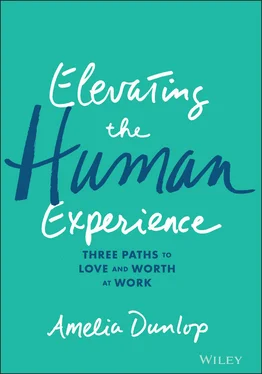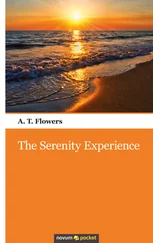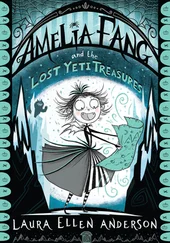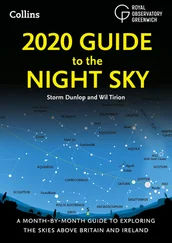—Aaron M. G. Zimmerman,Episcopal priest; host of Same Old Song podcast
“ Elevating the Human Experience: Love and Worth at Work is personal; it’s insightful; and it's exactly what is needed right now as many of us reckon with how to reconcile our humanity and our careers.”
—Dane Jensen,CEO, Third Factor; author of The Power of Pressure
“This book represents a heartfelt and deep paradigm shift. While most business leaders walk on eggshells trying to describe the humanity and emotional well-being of their workforce, Amelia Dunlop, simply and satisfyingly, asks us to love.”
—Renato Mazziero,Vice President, Experience and Innovation, Thrivent
“The prospect of a workplace that incorporates love as a means of unlocking, even transforming the humans who comprise it, is a bold stroke. Connecting investment in the human experience at work with individual and organizational performance, Elevating the Human Experience is a refreshing and inspiring work.”
—Tim NeCastro,president and CEO, Erie Insurance Group
Elevating the Human Experience
Three Paths to Love and Worth at Work
By
Amelia Dunlop

Copyright © 2022 by John Wiley & Sons, Inc. All rights reserved.
Published by John Wiley & Sons, Inc., Hoboken, New Jersey.
Published simultaneously in Canada.
No part of this publication may be reproduced, stored in a retrieval system, or transmitted in any form or by any means, electronic, mechanical, photocopying, recording, scanning, or otherwise, except as permitted under Section 107 or 108 of the 1976 United States Copyright Act, without either the prior written permission of the Publisher, or authorization through payment of the appropriate per-copy fee to the Copyright Clearance Center, Inc., 222 Rosewood Drive, Danvers, MA 01923, (978) 750-8400, fax (978) 646-8600, or on the Web at www.copyright.com. Requests to the Publisher for permission should be addressed to the Permissions Department, John Wiley & Sons, Inc., 111 River Street, Hoboken, NJ 07030, (201) 748-6011, fax (201) 748-6008, or online at http://www.wiley.com/go/permissions.
Limit of Liability/Disclaimer of Warranty: While the publisher and author have used their best efforts in preparing this book, they make no representations or warranties with respect to the accuracy or completeness of the contents of this book and specifically disclaim any implied warranties of merchantability or fitness for a particular purpose. No warranty may be created or extended by sales representatives or written sales materials. The advice and strategies contained herein may not be suitable for your situation. You should consult with a professional where appropriate. Neither the publisher nor author shall be liable for any loss of profit or any other commercial damages, including but not limited to special, incidental, consequential, or other damages.
For general information on our other products and services or for technical support, please contact our Customer Care Department within the United States at (800) 762-2974, outside the United States at (317) 572-3993 or fax (317) 572-4002.
Wiley publishes in a variety of print and electronic formats and by print-on-demand. Some material included with standard print versions of this book may not be included in e-books or in print-on-demand. If this book refers to media such as a CD or DVD that is not included in the version you purchased, you may download this material at http://booksupport.wiley.com. For more information about Wiley products, visit www.wiley.com.
Library of Congress Cataloging-in-Publication Data
Names: Dunlop, Amelia, author.
Title: Elevating the human experience : three paths to love and worth at work / Amelia Dunlop.
Description: Hoboken, New Jersey : Wiley, [2022]
Identifiers: LCCN 2021031992 (print) | LCCN 2021031993 (ebook) | ISBN 9781119791348 (hardback) | ISBN 9781119791379 (adobe pdf) | ISBN 9781119791355 (epub)
Subjects: LCSH: Quality of work life.
Classification: LCC HD6955 .D89 2022 (print) | LCC HD6955 (ebook) | DDC 650.1—dc23
LC record available at https://lccn.loc.gov/2021031992
LC ebook record available at https://lccn.loc.gov/2021031993
COVER DESIGN: PAUL MCCARTHY
BACK COVER ILLUSTRATION: ABISHEK SIRCAR
To my mother and father
Love and work are the cornerstones of our humanness.
—Sigmund Freuds
Ever since I was a little girl, I struggled to feel worthy of love. I didn’t know what to call it as a child, but as I lay in bed at night in the room I shared with my older brother, the evidence seemed to mount in that direction. Something always seemed to be a bit off, crooked, like the pinky finger on my right hand that does not straighten. Children would be equal parts fascinated and repulsed by my crooked finger. I would proudly tell them that it was “genetic,” using a big word to tell them that I was born that way. And, no, as weird as it looked, it did not hurt. Sometimes they wouldn’t believe me, and they would try to force my finger to straighten, pushing it down as hard as they could under a pile of books. That did hurt. And my crooked finger reminded me, and them, that I was not quite worthy.
It was my mother who noticed that I could not see or hear what other children could. She tells the story of watching me sit dressing my Barbies on the rug while she called my name from across the room. As she tells it, I never looked up, never heard her. I have no memory of this. I had surgery on my ears at age four, and by then I had a 70% hearing loss. My eyes, we discovered later, were closer to blind than they were to 20/20 vision .
As the world around me grew quieter and more out of focus, I have a clear memory—a memory that I trust in that unreliable and murky place of what we piece together of our past from photograph and story—of running through Heathrow Airport holding my mother's hand to catch a plane to leave our life in London and my father behind. I was five years old. There are no photographs of that day. Although grown-up details have certainly colored in the outlines of memory, I remember feeling the urgency. I felt the suddenness of being woken up in the middle of the night, which was probably just in the predawn hours before I normally woke. I felt the leaving-quietly-ness. I felt the need to hush or to be told again to hush. I felt the need to stop asking why and just put my shoes on, which had laces too difficult for me to tie. I remember wondering why we were running when they had these magical sidewalks that could move for you down the long corridors of the airport. I felt the tug of my mother's hand to please-move-faster-or-we-might-miss-our-plane. Once seated in our row, my mother turned it into a sort of holiday for my brother and me. We were going to visit her mother in Fort Lauderdale, our nana. It would be sunny and warm there. “Wouldn't that be nice?” And the rest of the movie memory fades. That's it. That's all I have of how I went from being a little English girl, living with her mother, father, and brother in their brownstone house near the Clapham tube station, attending an all-girls school, to being a little not-quite-American girl, living with her grandmother in the spare bedroom of her bungalow in Fort Lauderdale, attending a school where I was known for my funny British accent and crooked little finger .
Upon arrival in Florida, my mother cut off my hair as if to complete the transformation from someone I knew to someone I did not. I had had long brown hair just past my shoulders that used to be pinned back with barrettes and pink ribbons to match my dresses. My mother told me it would be too hot for such long hair (even though she did not cut hers, I noticed). She got my brother and me matching bowl cuts at the local Supercuts. There are photos of us looking like twins in matching yellow and blue striped rugby shirts. I'm the slightly shorter twin missing her two front teeth. I'm smiling. My memory is not of smiling about that shorn version of myself. Since I turned eighteen, I have worn my hair to the middle of my back .
Читать дальше













